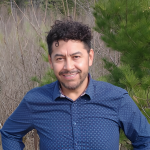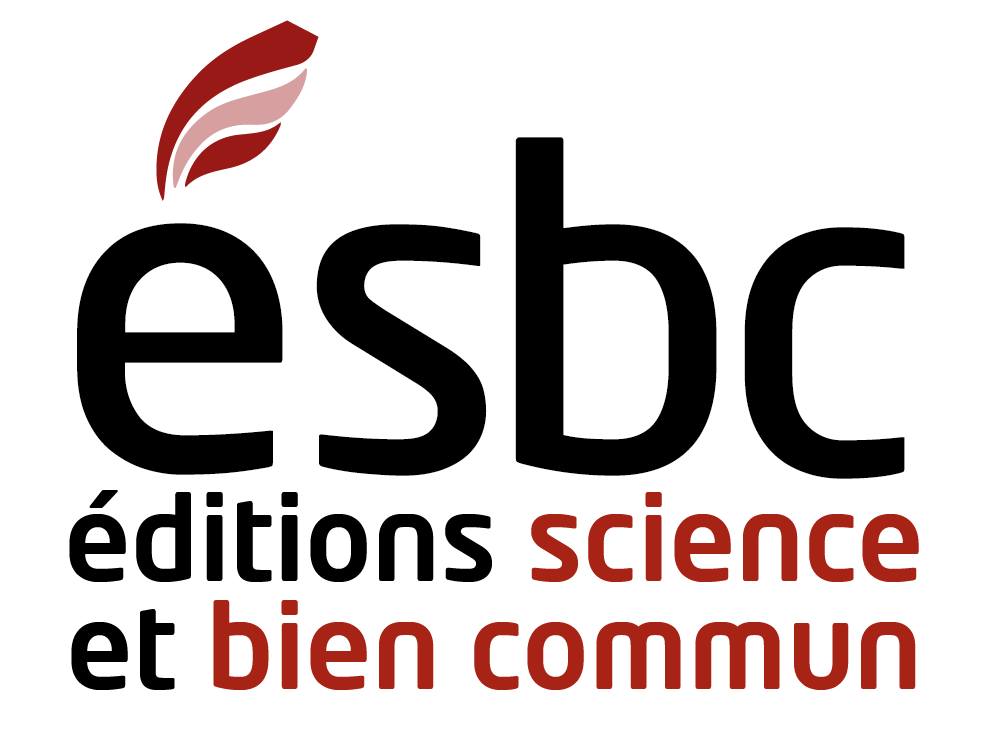Biographies
Editors
 Paul R. Carr is a Full Professor in the Department of Education at the Université du Québec en Outaouais, Canada, and is also the Chairholder of the UNESCO Chair in Democracy, Global Citizenship and Transformative Education (DCMÉT) (https://uqo.ca/chaire-unesco-dcmet). His research focuses on political sociology, with specific threads related to democracy, global citizenship, media literacy, peace studies, the environment, intercultural relations, anti-racism and transformative change in education. He has eighteen co-edited books and a single-author book (Does your vote count? Democracy and critical pedagogy) as well as a co-authored book with Gina Thésée (“It’s not education that scares me, it’s the educators…”: Is there still hope for democracy in education, and education for democracy?). His most recent book, co-edited with Gina Thésée and Eloy Rivas-Sanchez, is a trilingual volume entitled The Epicenter: Democracy, Eco*Global Citizenship and Transformative Education / L’épicentre : Démocratie, Éco*Citoyenneté mondiale et Éducation transformatoire / El Epicentro: Democracia, Eco*Ciudadanía Mundial y Educación Transformadora. He is the principal investigator of two Social Science and Humanities Research Council of Canada (SSHRC) research projects entitled, respectively, Democracy, political literacy and transformative education, and Social Media, Citizen Participation and Education. Before entering academia, he was a Senior Policy Advisor at the Ontario Ministry of Education (Canada), working on equity, anti-racism and social justice issues. He also writes poetry, and his latest book is entitled DEMOCRAzY, published by Hidden Brook Press.
Paul R. Carr is a Full Professor in the Department of Education at the Université du Québec en Outaouais, Canada, and is also the Chairholder of the UNESCO Chair in Democracy, Global Citizenship and Transformative Education (DCMÉT) (https://uqo.ca/chaire-unesco-dcmet). His research focuses on political sociology, with specific threads related to democracy, global citizenship, media literacy, peace studies, the environment, intercultural relations, anti-racism and transformative change in education. He has eighteen co-edited books and a single-author book (Does your vote count? Democracy and critical pedagogy) as well as a co-authored book with Gina Thésée (“It’s not education that scares me, it’s the educators…”: Is there still hope for democracy in education, and education for democracy?). His most recent book, co-edited with Gina Thésée and Eloy Rivas-Sanchez, is a trilingual volume entitled The Epicenter: Democracy, Eco*Global Citizenship and Transformative Education / L’épicentre : Démocratie, Éco*Citoyenneté mondiale et Éducation transformatoire / El Epicentro: Democracia, Eco*Ciudadanía Mundial y Educación Transformadora. He is the principal investigator of two Social Science and Humanities Research Council of Canada (SSHRC) research projects entitled, respectively, Democracy, political literacy and transformative education, and Social Media, Citizen Participation and Education. Before entering academia, he was a Senior Policy Advisor at the Ontario Ministry of Education (Canada), working on equity, anti-racism and social justice issues. He also writes poetry, and his latest book is entitled DEMOCRAzY, published by Hidden Brook Press.
 Eloy Rivas-Sanchez is an Associate professor of Sociology at Athacasca University. His research and teaching praxes are guided by the normative principle that considers that the scientific inquiry and the learning process must serve the purposes of human life improvement and emancipation, including emancipation from exclusion, illiteracy, harm and suffering. He has undertaken several studies on precarious migrants in the Americas, and has been involved in activism for migrant rights for a number of years. He has been a central member of the UNESCO Chair DCMÉT from its inception.
Eloy Rivas-Sanchez is an Associate professor of Sociology at Athacasca University. His research and teaching praxes are guided by the normative principle that considers that the scientific inquiry and the learning process must serve the purposes of human life improvement and emancipation, including emancipation from exclusion, illiteracy, harm and suffering. He has undertaken several studies on precarious migrants in the Americas, and has been involved in activism for migrant rights for a number of years. He has been a central member of the UNESCO Chair DCMÉT from its inception.
 Gina Thésée is a Full Professor in the Department of Teacher Education, Faculty of Education, University of Quebec in Montreal (UQAM). She is the Co-Chair of the UNESCO Chair in Democracy, Global Citizenship and Transformative Education (DCMET). For several years, she actively collaborated in the work and activities of UNESCO’s International Task Force on Teachers for Education for All. At UQAM, she is a member of the Council of the Institute for Feminist Research, the Institute of Environmental Science, the Center for Research in Education and Training on the Environment and Eco-citizenship and the Faculty Union Committee (SPUQ) against racism. Her research areas include intercultural education, environmental education, global citizenship education, feminist studies and transformative/emancipatory education. She has numerous scientific and professional publications in these fields. Prior to her academic career, she was a secondary school science teacher in Montreal. In 2006, she was recognized as a Laureate for the Black History Month of the City of Montreal in honour of her work in the Black community.
Gina Thésée is a Full Professor in the Department of Teacher Education, Faculty of Education, University of Quebec in Montreal (UQAM). She is the Co-Chair of the UNESCO Chair in Democracy, Global Citizenship and Transformative Education (DCMET). For several years, she actively collaborated in the work and activities of UNESCO’s International Task Force on Teachers for Education for All. At UQAM, she is a member of the Council of the Institute for Feminist Research, the Institute of Environmental Science, the Center for Research in Education and Training on the Environment and Eco-citizenship and the Faculty Union Committee (SPUQ) against racism. Her research areas include intercultural education, environmental education, global citizenship education, feminist studies and transformative/emancipatory education. She has numerous scientific and professional publications in these fields. Prior to her academic career, she was a secondary school science teacher in Montreal. In 2006, she was recognized as a Laureate for the Black History Month of the City of Montreal in honour of her work in the Black community.
Contributors
Bachar Chbib is a grounded researcher with knowledge and interest in film-making for over 40 years, and engages positionality, perspective and academic privileges. He has a B.Sc. (McGill, 1981), a BFA in film production (1983, Concordia University), an MA in communications (McGill University, 2007), and an MA in Education (Bishop’s University, 2023). His Master’s thesis, published at Bishop’s University (2023), deals with Cellphilm use in Ecopedagogy. His ongoing research for his Ph.D dissertation at Université du Québec à Montréal addresses the more-than-human engaged with technology in education.
Antonia Darder is an internationally recognized scholar, artist, poet, activist, and public intellectual. She held the Leavey Presidential Endowed Chair in Ethics and Moral Leadership in the School of Education at Loyola Marymount University and is also Professor Emerita of Educational Policy, Organization, and Leadership at the University of Illinois at Urbana-Champaign. She is an internationally recognized Freirian scholar, and, for more than 30 years, her practice and scholarship have focused on political questions and ethical concerns linked to racism, class inequalities, language rights, critical pedagogy, Latino education, and social justice. More recently, her work has sought to articulate a critical theory of leadership for social justice and community engagement, as well as to theorize a pedagogy of beauty, in the pursuit of a liberatory practice of education. Beyond her scholarly efforts, she has been an activist and visual artist, participating in a variety of grassroots efforts tied to educational rights, workers’ rights, bilingual education, women’s issues, environmental justice, and immigrant rights.
Dave Hill is a Marxist political, trade union and education activist in the UK and Greece. He has fought 13 Euro, national and local elections in the UK over a fifty-year period, and been tear-gassed in Athens and Ankara while on demonstrations. He is Founding Editor and Managing Editor of the open-access international academic journal, the Journal for Critical Education Policy Studies (JCEPS) (www.jceps.com) (two million free downloads since 2003). With Kostas Skordoulis he co-founded (in 2010) and co-organises the annual ICCE (International Conference on Critical Education). He is the editor of the Routledge Studies in Education, Neoliberalism and Marxism series (33 books published). Dave has written/co-written/edited/co-edited 26 books and a couple of hundred book chapters and articles, on social class, education, ideology, party, policy, `race’, anti-capitalism, Marxism/ Marxist education. There is a Wikipedia entry on Dave Hill at https://en.wikipedia.org/wiki/Dave_Hill_(professor)
Michael Hoechsmann is a Professor in the Faculty of Education at Lakehead University (Orillia, Ontario, Canada). His research is focused on digital and media literacies, cultural studies, and education in formal and non-formal settings. Hoechsmann is one of the co-editors with Carr and Thésée of the award-winning Education for Democracy 2.0: Changing Frames of Media Literacy (Brill/Sense, 2021), and he is the Chair of the Media Education Research section of the International Association for Media and Communication Research (IAMCR).
Petar Jandrić is a Professor at the Zagreb University of Applied Sciences, Croatia, and a Visiting Professor at Bath Spa University, UK. His research interests are situated at the post-disciplinary intersections between technologies, pedagogies and the society, and research methodologies of his choice are inter-, trans-, and anti-disciplinarity. He is Editor-in-Chief of Postdigital Science and Education journal https://www.springer.com/journal/42438, book series https://www.springer.com/series/16439, and encyclopedia, https://link.springer.com/referencework/10.1007/978-3-031-35469-4. Personal website: http://petarjandric.com/.
Ravi Kumar teaches Sociology at South Asian University, New Delhi. Prior to joining the South Asian University, he taught at Jamia Millia Islamia. He has been a visiting faculty member at Anglia Ruskin University, UK, as well as the National Institute of Design, India. His areas of specialisation include politics of knowledge production, social movements, social theory, in general, and Marxism, in particular, political economy of identity formation and South Asian studies. His books include: The New Republic: Populism, Power and the Trajectories of Indian Democracy (2022); Contemporary Readings in Marxism: A Critical Introduction (2022); Left Politics in South Asia: Reframing the Agenda (2018); and Neoliberalism, Critical Pedagogy and Education (2015); He co-edits the book series titled Social Movements, Dissent and Transformative Action (Routledge).
Sheila Landers Macrine is a cognitive psychologist and Professor at the University of Massachusetts Dartmouth. Her groundbreaking research encompasses embodied cognition, cognitive development, as well as social justice equity, and critical feminism. Her recent publications on embodied cognition are featured in the International Journal of School and Educational Psychology and the Oxford Research Encyclopedias-Education at Oxford University Press, among others. Her recent co-edited books include: Transnational Feminist Politics, Education, and Social Justice (Bloomsbury Press, 2021) and Movement Matters: How Embodied Cognition Informs Teaching and Learning (MIT Press, 2020).
Claudia Lenz is a professor in social science and Chair for the prevention of antisemitism and racism at MF Norwegian School of Theology, Religion and Society. She also holds a position as a research professor at the Norwegian Centre for Studies of Holocaust and Religious Minorities. Her fields of research and teaching are memory culture, historical consciousness and history didactics related to traumatic events in the past, education for democratic citizenship and prevention of group-focused enmity, racism and discrimination in schools.
Peter McLaren is Professor Emeritus at the School of Education and Information Studies, University of California, Los Angeles. He received his Ph.D. from the Ontario Institute for Studies in Education, University of Toronto, in 1984. He taught for 8 years at Miami University of Ohio, 20 years at the University of California, Los Angeles, and ten years as Distinguished Professor in Critical Studies, The Donna Ford Attallah College of Education Studies, Chapman University, where he also served as Co-Director and International Ambassador for Global Ethics and Social Justice, for the Paulo Freire Democratic Project. A Fellow of the Royal Society of Arts and Commerce and a Fellow of the American Education Research Association, his writings have won numerous awards and have been translated into 25 languages. He is the recipient of four honorary doctorates from Argentina, Chile and Finland and four Lifetime Achievement Awards. He is the 2023 recipient of the Paulo Freire Legacy Award from the American Educational Research Association. Professor McLaren is the Co-Founder of Instituto McLaren de Pedagogía Crítica, Ensenada, Mexico. He is the author and editor of over 40 books and hundreds of research publications.
Miranda McKee is a researcher, educator and curator. She has spent over a decade between Dubai, Abu Dhabi and Toronto developing exhibitions and public programs in collaboration with artists, NGOs, educational institutions, and government organizations. Her research examines the power of imagery as public pedagogy, with a particular interest in the problematic biases visually embedded within photographs. Her work is driven by a passion for arts and culture initiatives that provide meaningful platforms for community building. Miranda has an M.Ed. from Lakehead University and is pursuing a Ph.D. in Communication and Culture at York University and Toronto Metropolitan University.
Greg William Misiaszek is an Associate Professor at Beijing Normal University’s (BNU), Faculty of Education, Theories of Education Institute. He also holds various positions, including Associate Director, Paulo Freire Institute, UCLA; Executive Editor of the Teaching in Higher Education: Critical Perspectives journal; Book Series Editor of Bloomsbury’s Freire in Focus (with Carlos Alberto Torres (UCLA); and Editor of the Bloomsbury Encyclopedia of Environmental Education (with Karen Malone (Swinburne University of Technology). His work focuses on critical, comparative analysis of education, with specific emphasis on ecopedagogy, through theories of globalizations, citizenships, race, gender, migration, Indigenous issues, linguistics, epistemological justice, and media, among others. His most recently published book (Bloomsbury) is Freire and Environmentalism: Ecopedagogy.
Jeff Share is an award-winning photojournalist who has taught bilingual elementary school and has been teaching in the School of Education at the University of California, Los Angeles (UCLA) since 2007. His research and teaching focus on critical media literacy and environmental justice. He is a Fulbright Program Specialist who presents nationally and internationally at conferences and provides professional development to educators. With Richard Beach and Allen Webb, Jeff co-wrote (2017): Teaching Climate Change to Adolescents: Reading, Writing, and Making a Difference. In 2019, with Douglas Kellner, he co-authored The Critical Media Literacy Guide: Engaging Media & Transforming Education. Personal website: https://jshare.wixsite.com/jeffshare
Merethe Skårås is an associate professor of education at MF Norwegian School of Theology, Religion and Society. Her scholarly work focuses on teacher education, education in emergencies, citizenship education, history education and reconciliation. Her recent work includes student-active teaching and learning in higher education, and textbook analysis of the newly published citizenship and history textbooks in South Sudan.
Juha Suoranta is a Professor of Adult Education at Tampere University. His research interests include public sociology, critical pedagogy, media education, and sociology of education, and he has published some 30 academic books. In 30+ years of career, Suoranta has held various academic positions, including serving as a visiting scholar at the University of Illinois at Urbana-Champaign (1996-1997), the University of California, Los Angeles (2003-2004), and the Government of Finland/David and Nancy Speer Visiting Professor in Finnish Studies and Sociology at the University of Minnesota (2005-2006). Suoranta is the President of the Finnish Educational Association Citizen’s Forum, one of Finland’s 12 nationwide study centres.
Hanna Teräs is a Principal Lecturer at Tampere University of Applied Sciences Applied Research Centre ARC. Her area of responsibility covers research, development, and innovation in digital learning environments and professional learning. She has over 20 years of experience designing, implementing, and researching digital learning in tertiary, vocational, and continuous learning. She also has extensive experience in leading research and development projects both nationally and internationally. She is passionate about equity and access to high-quality education, learning design, and strategic development of education.
Marko Teräs is a postdoctoral researcher in an Academy of Finland-funded research project entitled Speculative Social Science Fiction of Digitalization in Higher Education: Towards a Humanized Digital Future (2021–2025) at Tampere University. He is also the co-founder and lead of the CARDE (Critical Applied Research of Digitalization in Education) research group. His areas of interest include digitalization, the datafication of education, and critical theory. He has years of international experience in human-computer interaction, user experience, e-learning and EdTech, and qualitative research (narrative research, phenomenology, discourse analysis, speculative and utopian methods). He also leads a band, Kino Kosmos, which plays a unique mix of alternative rock with jazz and blues influences.
iowyth hezel ulthiin is a doctoral candidate at Toronto Metropolitan University, and their research engages in sensory ethnography and participatory research-creation, exploring a land-based lens and a focus on potentiating horizontal power relations through community-based praxis. Engaging in the creative exploration of deep philosophical discourse and embodied sensation, their work engages hopefully in grounded utopic visioning and the consequent practical realization of radical social alternatives. They are the author of one sole authored text, The Witch: A Pedagogy of Immanence and are co-author of The Capitol Riots: Digital Media, Disinformation, and Democracy Under Attack and the forthcoming Queer Cartography: Mapping Queerrealities and The Political Economies of Alternative Media.

